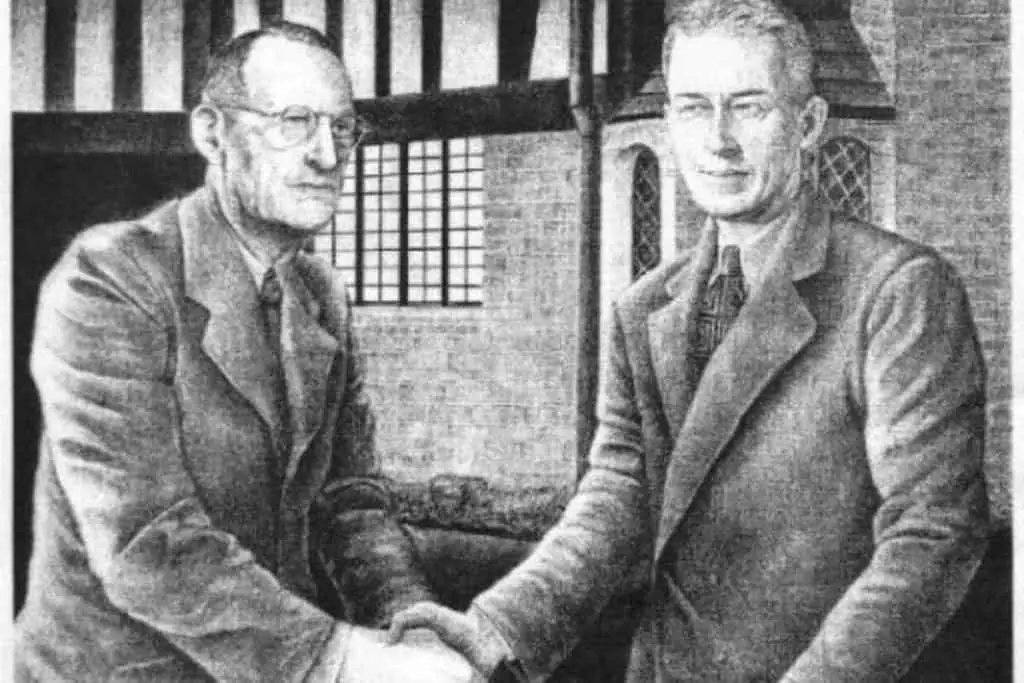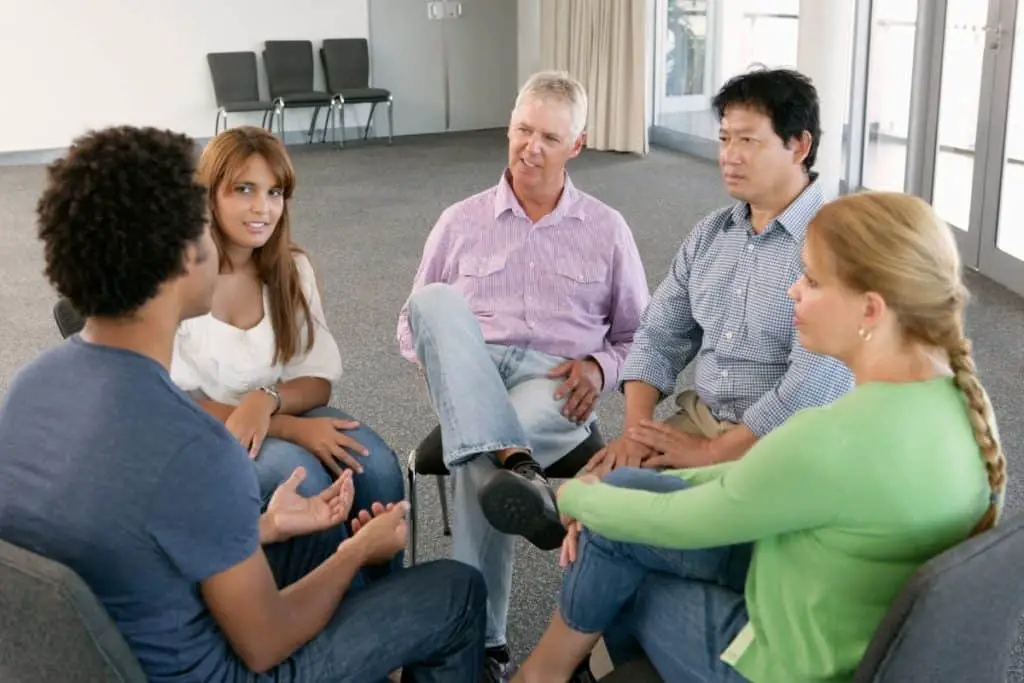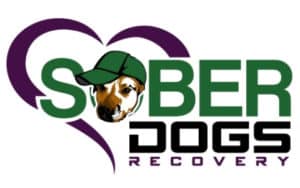12 step programs originated in the 1930s with A.A. Bill Wilson and Dr. Bob Smith saw that many folks were unable to find recovery through the medical community and their practices. They developed a program that uses the principles of honesty, community, and spirituality to help people stay sober.
Finding accurate success rates on 12-step programs is very difficult due to the anonymity of these programs. The A.A. Big Book touts a 50% success rate. For those questioning, if 12-step programs are effective or not I would say all you need to do is look at their survival and expansion.
12-step programs started in 1935 with 2 men and 1 meeting. Today A.A. has meetings in over 170 countries with over 2 million active members. That number doesn’t include the other 35 types of 12 step programs.

Here is a list of all the 12-step programs that have been created using the A.A. method:

The number of groups that have branched off of A.A. is a testament to the power and success of the 12-Step method. I started going to A.A. and N.A. meetings about 5 years ago and they have saved my life.
12 Benefits of 12-Step Programs
1. Meeting and Connecting With Others Who Have The Same Disease
Addiction is classified as a disease according to the American Medical Association and countless others doctors and medical institutions.
I have sat with over a dozen addiction counselors and therapists who have done nothing but study addiction their entire careers, they were great and helped, but sitting with someone who had been where I was allowed me to relate on a level I didn’t know was possible.
This concept is not new. The vast majority of support groups revolve around the concept of helping the newcomer. This is accomplished by the people who have been there and dealt with their past issues relating and explaining what helps and what doesn’t to that person coming in for the first time. This connection allows people to open up and connect on a level they typically have never experienced.
2. Hearing Other People’s Experience, Strength, and Hope
When a person shares their story at a 12-Step meeting they’re sharing their experience, strength, and hope. Listening to someone’s experience of what they went through helps put the whole situation into perspective. It allows others to understand “wow Bob went through similar struggles as I did”.

The strength is hearing how a person overcame those issues and struggles. Hearing someone else’s strength and perseverance gives us hope that we can do it as well. It’s important for newcomers to relate to others’ stories and not compare. It’s easy to compare and say “wow I’m not as bad as Susie” or “wow I’m way worse than Susie”. Instead of comparing find common ground between your and Susies stories and relate to the struggles and strength.
3. Creating A Support Network
It’s almost impossible not to make new friends and support when you’re attending meetings on a regular basis. The people I have met through 12-step programs have become some of my best friends and biggest allies when times are tough.
When I was about a year sober I had to put my dog down. I’m a huge animal lover and my dog Morgan was family. It was very hard. 7 different people from the meetings I attend offered to go with me to the vet and to hang out with me afterward for support. That feeling of knowing these people are in my corner and want to help is incredible.
The support network I have built through A.A. and other 12-step groups is invaluable. They’ve saved my life numerous times.
It also works on the flip side. When others are struggling I’m there for them to help in any way I can.
4. Meetings Are A Positive Safe Place To Go
For many in early sobriety staying sober is a minute-to-minute task. We are anxious and craving non-stop and often feel terrible. Sitting alone and isolating is the worst thing someone newly sober can do. Getting to a meeting offers a safe place to sit down, connect with others, and know I’m not going to be tempted to use for at least the hour I’m in that meeting.
Many places have an open door policy. The building is open all day even when there are no meetings going on so people have a safe place to go. Countless people will go to the meeting building and just stay all day because their home environment is unhealthy. This is a major benefit to folks trying to avoid the chaos of home life especially if they live with someone who is still actively drinking or using drugs.
5. Comradery And The Fellowship of The 12-Step Meetings

There is a saying throughout 12-step programs about getting to the meetings before the meeting and the meeting after the meeting. Many newcomers (myself included when I first started), would come in the second the meeting started and would leave the second the meeting ended.
Getting to a meeting early and chatting with others is a huge part of recovery. It teaches us how to be social again with substances, and allows us to have honest conversations with people about how we are doing. When someone in a meeting asks me how I’m doing, I know they genuinely want to know. I can answer truthfully, without the fear of judgment.
6. 12-Step Meetings Are Free
12-Step meetings are totally free. During most meetings, they pass around a basket, and if you choose you can put a dollar or two in, but it is not required. The first few months I went to meetings I could not afford to put anything in the basket. No one ever said anything to me. After a few months, I wanted to start putting money in to help repay them for all the help the meetings have provided me.
I find meetings to be equally as beneficial as many therapy sessions I have gone to. Considering therapy cost $60-$200 an hour, a dollar is a lot better choice for me.
With that said I’m not against therapy. Therapy is great and helped me and many others, but after years of therapy, I now get the same benefit from a meeting and working with my sponsor. The therapy was essential to my recovery but after finishing it I now choose to attend more meetings instead of going back to therapy unless I need to.
7. You Can Take What You Need And Leave The Rest
One thing I was taught at the beginning of my time in A.A. was to take what applies and let the rest fly. Everyone who shares is not going to have something I can relate to and some might even have things I disagree with. The nice part is we can choose to take what we need and discard the rest.
Like anything else in the world, A.A. is not perfect. Some people at a meeting may still be drinking or using, others may be gossiping. I get to choose not to associate with them and let that fly.
8. Finding And Working With A Sponsor
Sponsors in 12-step programs are one of the incredible gifts that are not talked about enough. My sponsor is a mentor, friend, sponsor, and guide all rolled into one. I call him with good news and bad news and he always knows what to say to help me get through whatever struggles I’m facing.

One thing many people who are not involved in 12-step programs don’t understand is how a sponsor working with a sponsee is just as beneficial for the sponsor. When we get to talk to a sponsee struggling and help guide them through the turmoil this helps us remember our own struggles. It also helps us get out of our own heads and help another person.
9. Going Through The 12-Steps Really Changes Peoples Lives
The meat and potatoes of a 12-step program is going through the steps. These were designed to allow people to understand they have a problem, face their past traumas and learn how to cope, make amends for any wrongdoing they have done, and pass the message on to the newcomer.
Countless people have written about the awakening they had after going through the 12-steps. Their lives were changed. I can relate to this. Going through the steps allowed me to look at my life, face my demons and learn how to live a better honest life.
10. Meetings Keep Recovery In The Front of Our Brains
One of the most common questions “old-timers” with a lot of sobriety get asked is “Why do you still go to meetings after being sober for 30 years?” They continue to go because meetings and the steps are what got them sober so why stop doing what worked and continues to work.

It’s very common for us to forget about all the bad times and destruction our addiction caused, going to meetings helps keep that in the front of our brains. There is no cure for addiction so we need to manage it on a daily basis and meetings are a big part of this for people in 12-step programs.
11. 12-Step Meetings Help Recharge Our Batteries
Meetings help people recharge and take a step back. When a person gets sober life doesn’t stop. We still have to work, take care of family, and keep a healthy relationship with our significant other. On top of that, we have all the normal struggles everyone faces, death, loss of jobs, illnesses, etc. When we take an hour out of our day and go to a meeting it helps recharge our batteries to go out and face the world.
For many that hour in a 12-step meeting is a form of meditation. They unwind, breathe, and relax. Then they can leave in a better mood and prepared to take on challenges.
12. We Can Meet People All Over The World With Zoom Meetings

When the pandemic hit many folks were going nuts trying to figure out how they could go to their meetings. One of the hidden gems that came out of that was the zoom meetings. People from all over the world were able to hop on a Zoom meeting and connect with like-minded people.
I attended meetings in Paris, Australia, New Zealand, and many other places. It was so cool to talk with people thousands of miles away who understood the disease of addiction as I did.
12-Step Groups Saved My Life
12 Sep groups have literally saved my life. I was shooting up drugs multiple times a day every day. Meetings have helped me rebuild my life and connect with others doing the same. the first few times I went to an A.A. meeting I said ” this is not for me, the word God is on the wall nope.”
I would say to anyone with those same thoughts give it a chance. 12-step groups are not religious they are spiritual and don’t judge it based on 1 meeting. Go for 90 days before making the decision to quit going. It’s worked for millions of people around the globe and can work for you too!!
Articles
A common question many people in recovery from drugs get asked is "Why can't you have a drink?" or "If alcohol wasn't your drug of choice why can't you drink?". Everyone has their own path in...
A person in active addiction will do things that cross their own moral boundaries. On the inside, they will feel guilty and ashamed of what they are doing but the pull of addiction and the crippling...


